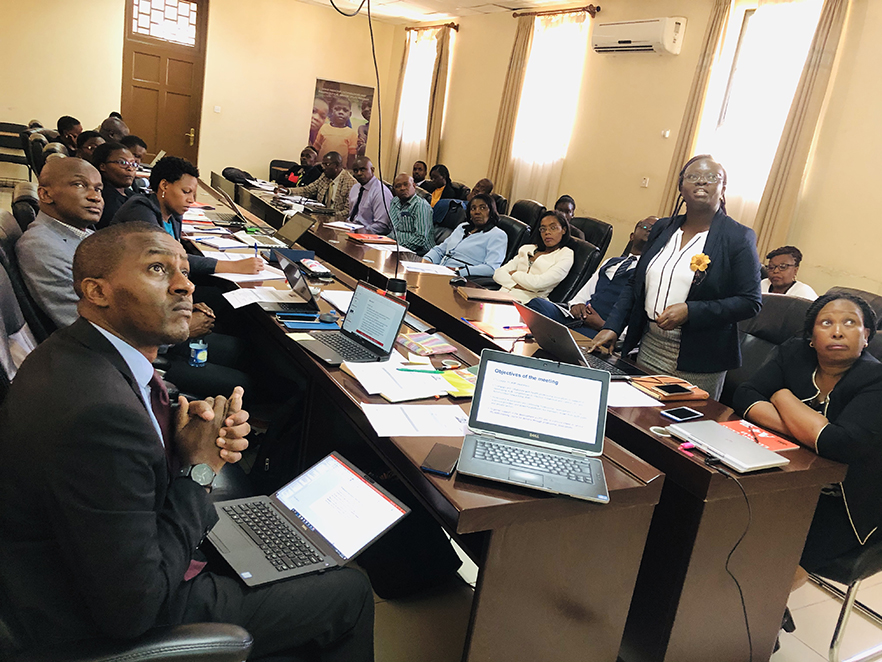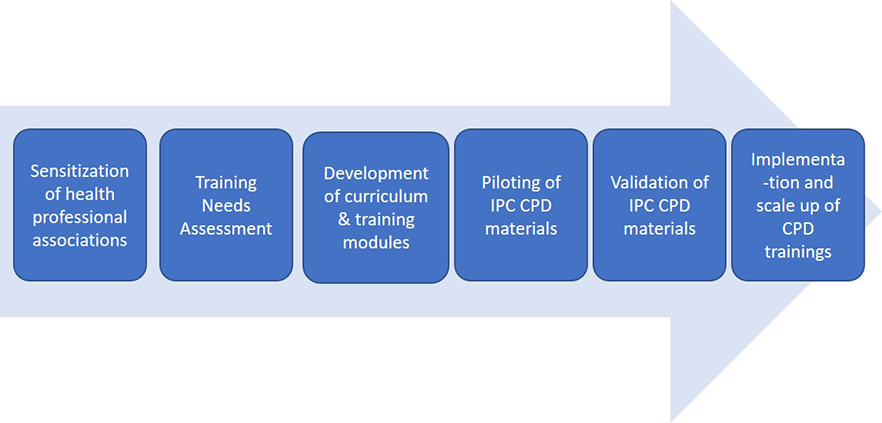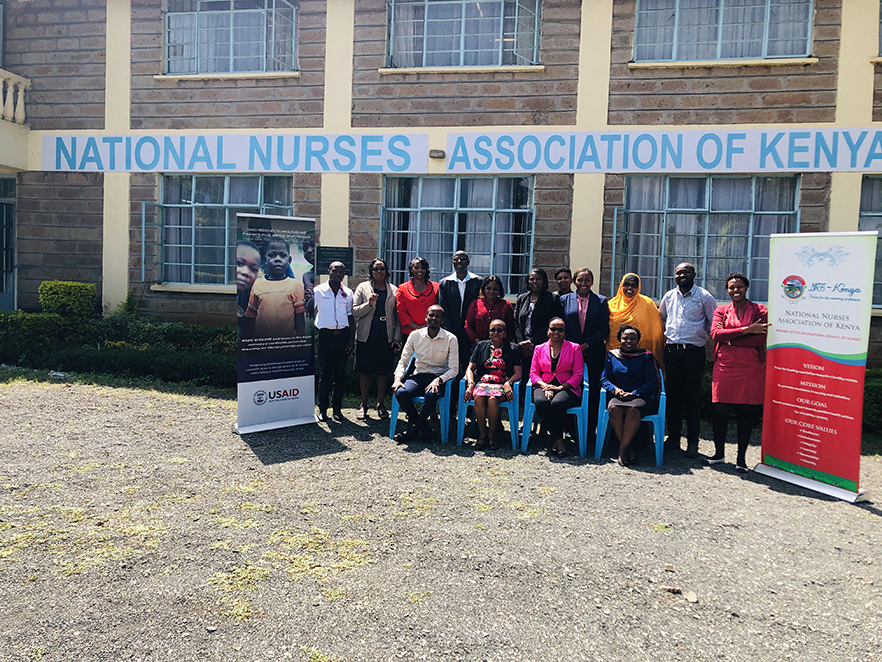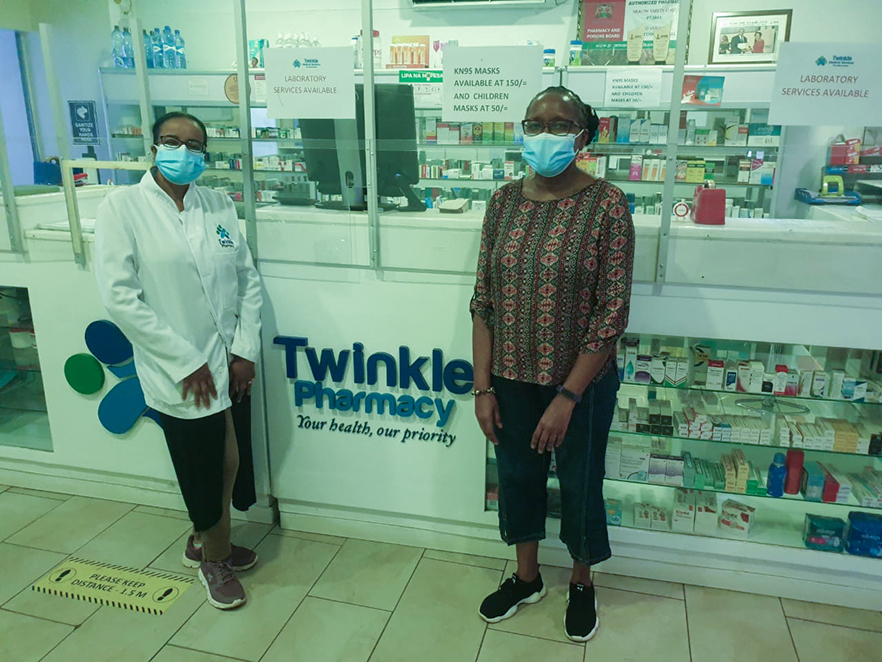Kenya Innovates on Continuing Professional Development of Health Workers in Infection Prevention
The demand for infection prevention and control (IPC) guidance and support has seen a recent surge due to the global COVID-19 pandemic. Other outbreaks, including Ebola in West Africa and Severe Acute Respiratory Corona Virus (SARS-CoV) in China, and the escalating global problem of antimicrobial resistance (AMR) have further thrust IPC to the center of health care needs. In Kenya, these emerging/re-emerging infections and AMR have triggered an urgency to revise, update, and develop new IPC guidance documents and for adequate training of health care workers on IPC and occupational safety and health, which is critical for preventing health care-associated infections (HAIs) and providing safe health care services.
To reach health care workers with the necessary IPC skills and knowledge on a large scale, the USAID MTaPS program leveraged professional associations that health care workers belong to, tapping into their role of maintaining standards and providing professional development to their members. MTaPS partnered with the National Nurses Association of Kenya and six other professional associations to develop and implement an in-service IPC continuing professional development (CPD) course, which was recognized by several health regulatory bodies and used to update the IPC skills of thousands of workers.
Tapping into Professional Associations to Maintain Health Workers’ Skills

A sensitization meeting for the professional associations (January 2020) Photo credit: Doris Bota
MTaPS used a stepwise approach to successfully develop and implement the IPC CPD course and training package (Figure 1). An education committee comprising seven professional associations was formed to spearhead and operationalize the agenda:
- National Nurses Association of Kenya
- Kenya Clinical Officers Association
- Kenya Medical Laboratory Scientific Officers
- Kenya Pharmaceutical Association
- Kenya Society for Physiotherapists
- Kenya Medical Association
- Pharmaceutical Society of Kenya

Figure 1: MTaPS’ approach to developing and implementing the IPC CPD course

The education committee, comprising health professional associations, that led the IPC CPD agenda (February 2020) Photo credit: Doris Bota
A training needs assessment was conducted using an online survey of members from the seven associations to inform the curriculum content. The survey identified the following needs for the training course:
- Making the course as automated and practical as possible
- Making it inclusive of all health care workers receiving and treating patients, including support staff, especially during the COVID-19 pandemic
- Using a blended approach with online and face-to-face trainings
- Including standard precautions and HAI surveillance as mandatory topics
- Addressing staffing levels and bed occupancy to ensure quality health services and IPC
- Training county and sub-health management teams
The IPC training package included seven modules:
- An introduction to IPC
- Management and coordination of health care delivery
- Hand hygiene in health care delivery
- Overview of occupational health and safety
- Environmental sanitation and waste management
- HAIs
- Behavior change communication in IPC
MTaPS conducted 11 trainings between September and December 2020 for more than 3,000 members of the seven professional associations, five of which awarded their members CPD credits through their respective regulatory bodies upon successful completion of the training. These regulatory bodies included the Nursing Council of Kenya, Pharmacy and Poisons Board Kenya, the Clinical Officers Council, and the Kenya Medical Practitioners and Dentists Council.
“Through the MTaPS capacity building program, we have been able to identify our gaps in IPC. Working as a team, we bridged those gaps to ensure that both our clients and staff are safe in our clinic,” shared Agnes K. Maina, a pharmaceutical technologist in Nairobi who participated in the training.

Agnes Maina, a trainee and pharmaceutical technologist in Nairobi (left) with Ndinda Kusu, MTaPS Kenya Country Director. Photo credit: MTaPS Kenya
Next Steps
MTaPS plans to use the experiences and feedback obtained during the initial IPC CPD trainings to update the modules in collaboration with the professional associations and engage the Nursing Council of Kenya and other regulatory bodies to accredit the updated IPC CPD course. Further, the program intends to identify and train local champions and mentors from the professional health associations and regional chapters to drive forward and roll out the IPC training agenda on a wider scale. The champions and mentors will support mentorship, on-the-job training, and targeted follow-up activities.
An effective and efficient response to emerging and re-emerging infections and AMR is possible only when diverse stakeholders, including professional associations and regulatory bodies, institutionalize IPC programs across all levels and organizations involved in health care. MTaPS’ ongoing collaboration with the various professional associations to deliver and accredit IPC training courses highlights the feasibility of an innovative approach to sustainably strengthen IPC in low- and middle-income countries.